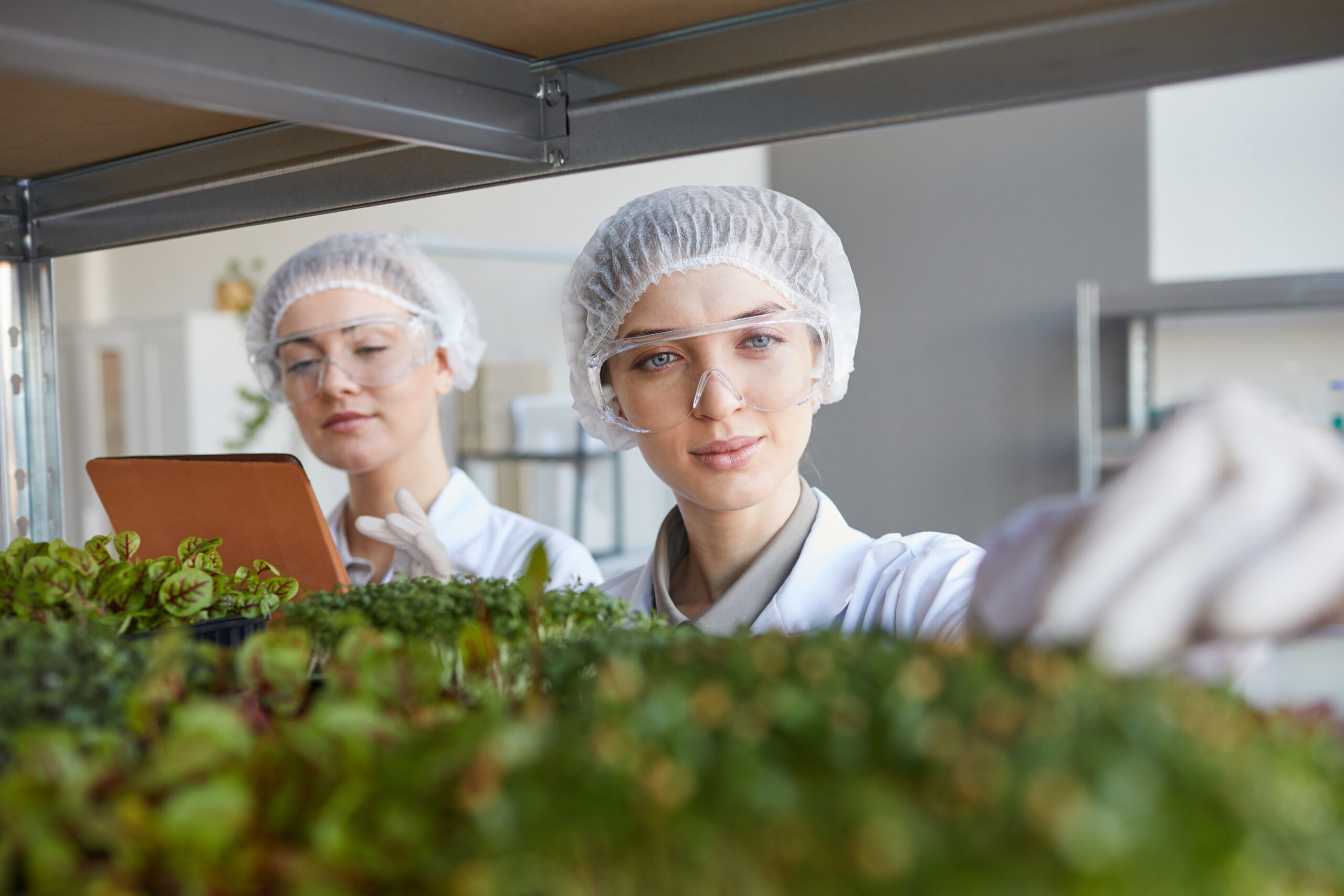Written by: Leanna Sweha, JD
Controlled Environment Agriculture (CEA) promises safe, high-quality produce grown with less water and chemical inputs, as well as reduced labor, packaging, and transportation costs. These efficiency factors are driving significant investment in the CEA industry.
Artificial intelligence (AI) will play a major role in maximizing CEA efficiency.
Allison Kopf, Chief Marketing Officer and Head of Data Product at iUNU, recently gave a webinar on the evolution of innovation in CEA as part of The AI Institute for Next Generation Food Systems (AIFS) speaker series.
iUNU is an industrial computer vision and software company that uses new data sources to understand and reduce risk and to optimize CEA. iUNU’s products include a software management platform that uses manual data entry and a computer vision AI platform that layers on top of the management platform. In addition, the firm has a team of horticulturalists.
Kopf focused on the remarkable growth and technological changes in CEA over the last decade and what she sees as future trends in CEA technology.
She noted that CEA is a powerful tool in a changing resource environment that includes urbanization, climate change, soil degradation and labor shortages. Therefore, we will continue to see big growth in CEA. However, CEA is still a “risky bet.”
Kopf discussed the “sea change” in CEA in the US, breaking it down into 5 phases, starting about 40 years ago. The first phase involved a few family-owned greenhouse businesses. Venture capital investment marked Phase 2 around 2010, which helped shift the industry away from the family business and drove incentives to invest in technology. Phase 3 involved the rise of the cannabis industry and independent CEA technology companies. Phase 4 is where we are now – scaling and mass adoption of technology as well as affordable debt financing.
The next phase, Phase 5, will be dominated by automated production using AI technology.
In 2015, Kopf founded Artemis, the first software company focused on CEA cultivation. Artemis was recently acquired by iUNU.
According to Kopf, autonomous growing has become “non-negotiable.” Data will need to be collected from start to finish in the production system and then fed that back into the system to allow for fully-autonomous growing at maximum efficiency and minimum risk. To achieve this, iUNU uses manual, sensor, and computer-vision data to create a closed-loop system.
During Q&A, The VINE’s Gabe Youtsey asked Kopf about the path to autonomous growing using digital twins.
Kopf noted that AI has not yet achieved the goal of optimizing autonomous growing systems due to their complexity. Supervisory control and data acquisition (SCADA) systems, which are still the norm in most CEA facilities, have many data gaps. Additional data is required to develop fully autonomous operations. Digital twins – computer models of an operation – can help model out all the risks of a CEA operation.
Youtsey also asked about the role of AI over computer vision data in autonomous growing.
Kopf noted that computer vision provides a lot of new data and will play a critical role in achieving fully autonomous systems. Computer vision gives greater granularity and provides data which includes data humans can’t see, miss or get wrong. With computer vision data, we can identify plant problems and make predictions earlier. For example, chlorosis can be detected early and can be remediated, before it devastates a facility. An example in prediction is germination rate, which computer vision can provide greater accuracy prior to the stage humans can detect.
Asked what is the single biggest sustainability challenge facing CEA today, Kopf said energy consumption. Although CEA uses fewer land, water and chemical resources, more energy is consumed through lighting and HVAC systems to control the environment. Therefore, smart energy management is critical, and AI will play an important role here.
When asked if there have been any surprise results that iUNU’s AI products had revealed, she noted one customer who had a best practice of underwatering. The customer learned through using iUNU products that yield would actually increase by overwatering.
AIFS, led by UC Davis, develops and commercializes novel AI-based solutions to food and agriculture challenges. AIFS is a VINE network partner.
Follow the AIFS speaker series and other events here: https://aifs.ucdavis.edu/events/

